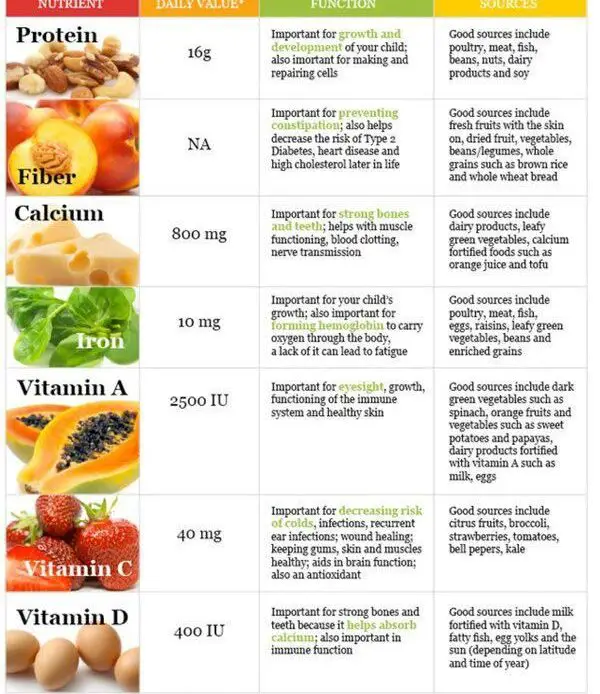The human microbiome is a vast and complex ecosystem, primarily located in the gut, consisting of trillions of microorganisms, including bacteria, fungi, viruses, and other microbes. This community plays a critical role in maintaining health, influencing digestion, immune function, and even mental health. The balance and composition of the microbiome are essential for its proper functioning, and disruptions can lead to various diseases.
What is Gut Health?
Gut health refers to the function and balance of bacteria in the gastrointestinal tract. The gut is home to trillions of microbes, including bacteria, viruses, fungi, and other microorganisms collectively known as the gut microbiome. These microbes play a crucial role in digesting food, absorbing nutrients, and maintaining the immune system.
Microbiome Explained
The microbiome is a complex ecosystem that influences many aspects of health. Each person’s microbiome is unique, shaped by factors like genetics, environment, and diet. A healthy microbiome is diverse, with a variety of beneficial bacteria that support digestion and immunity.
The Link Between Diet and Gut Health
How Diet Shapes the Microbiome
Diet is one of the most significant factors affecting the gut microbiome. Different foods can promote the growth of different types of bacteria. For example, a diet high in fiber supports beneficial bacteria like Bifidobacteria and Lactobacilli, while a diet high in fat and sugar can promote harmful bacteria like Clostridium difficile.
Studies have shown that dietary changes can alter the microbiome within 24 hours. For instance, a study published in Nature found that switching to a diet rich in animal products increased the abundance of bile-tolerant microorganisms and decreased levels of Firmicutes and Bacteroidetes, two major beneficial bacterial groups.
Importance of a Balanced Diet
A balanced diet provides the necessary nutrients for maintaining a healthy gut. It’s not just about individual foods but the overall dietary pattern that matters. Consistency and variety are key to nurturing a robust microbiome.
Key Nutrients for a Healthy Gut

Fiber
Fiber is a type of carbohydrate that the body can’t digest, acting as food for beneficial gut bacteria. High-fiber foods like fruits, vegetables, and whole grains help produce short-chain fatty acids (SCFAs) like butyrate, which have anti-inflammatory effects and support gut barrier function.
Probiotics and Prebiotics
Probiotics are live microorganisms that can confer health benefits when consumed, often found in fermented foods. Prebiotics are fibers that feed these beneficial bacteria. Together, they help maintain a balanced microbiome.
Research published in the journal Cell Host & Microbe shows that probiotics can help restore gut health after disturbances such as antibiotic use. Prebiotics, found in foods like garlic, onions, and bananas, enhance the growth of beneficial bacteria.
Polyphenols
Polyphenols are plant compounds with antioxidant properties that can improve gut health by increasing beneficial bacteria and reducing inflammation. Sources include berries, tea, coffee, and dark chocolate.
Omega-3 Fatty Acids
Omega-3 fatty acids, found in fatty fish like salmon and flaxseeds, have anti-inflammatory properties and can promote a healthy gut by supporting the growth of beneficial bacteria.
Foods That Promote Gut Health
Fruits and Vegetables
Rich in fiber, vitamins, and antioxidants, fruits and vegetables are essential for a healthy gut. Studies show that diets high in fruits and vegetables increase the diversity of the gut microbiome.
Fermented Foods
Fermented foods like yogurt, kefir, kimchi, and sauerkraut are rich in probiotics, which help maintain a balanced microbiome. A study in the journal Nutrients found that regular consumption of fermented foods can enhance gut health and boost the immune system.
Whole Grains
Whole grains like oats, quinoa, and brown rice provide essential fiber that feeds beneficial gut bacteria and aids in digestion. Research in the American Journal of Clinical Nutrition shows that whole grains can alter the gut microbiome favorably, increasing beneficial bacteria.
Nuts and Seeds
Nuts and seeds offer fiber, healthy fats, and polyphenols that support a diverse and healthy microbiome. Studies have shown that regular consumption of nuts is associated with increased levels of beneficial gut bacteria.
Foods That Harm Gut Health
Processed Foods
Processed foods are often high in unhealthy fats, sugars, and additives, which can disrupt the gut microbiome and lead to inflammation. Research in BMJ Open Gastroenterology suggests that high consumption of processed foods is linked to gut dysbiosis and inflammatory bowel diseases.
High Sugar and Artificial Sweeteners
Excessive sugar intake can promote the growth of harmful bacteria, while artificial sweeteners like aspartame and sucralose may negatively affect gut bacteria and metabolism. A study in Nature found that artificial sweeteners can induce glucose intolerance by altering the gut microbiota.
Excessive Alcohol
While moderate alcohol consumption may not be harmful, excessive drinking can disrupt the gut barrier and microbiome, leading to various health issues. Alcohol has been shown to increase the permeability of the gut barrier, allowing toxins to enter the bloodstream and cause inflammation.
Research published in BMJ Open Gastroenterology by Zinöcker and Lindseth (2018) showed a link between high consumption of processed foods and gut dysbiosis, characterized by an overgrowth of harmful bacteria and reduced microbial diversity . Furthermore, alcohol and excessive sugar were proven to decimate healthy gut bacteria.
Scientific Evidence
Research showing how gut health is affected by diet

The impact of diet on gut health is supported by extensive scientific evidence demonstrating how various dietary components can shape the gut microbiome. Fiber, a crucial element, serves as a substrate for fermentation by gut bacteria, producing beneficial short-chain fatty acids. Studies, such as those by Sonnenburg et al., have shown that high-fiber diets increase beneficial bacterial populations and enhance microbial diversity. Similarly, probiotics and prebiotics play a significant role in promoting gut health by stimulating the growth of beneficial bacteria and restoring the microbiota after disturbances, as evidenced by research from Hill et al.
Polyphenols, found in foods like berries and tea, also positively impact the gut microbiome. Hervert-Hernández and Goñi’s review highlighted how these compounds can increase beneficial bacteria and reduce inflammation. Omega-3 fatty acids, known for their anti-inflammatory properties, further support gut health by promoting beneficial bacterial growth and reducing inflammation, as shown by Costantini et al. Fermented foods, rich in probiotics, enhance gut microbiota diversity and improve immune responses, with studies from Marco et al. demonstrating these benefits.
Conversely, diets high in processed foods, sugars, and artificial sweeteners can disrupt the gut microbiota. Research has linked the Western diet to decreased microbial diversity and increased harmful bacteria, contributing to gut dysbiosis and inflammation. Notably, artificial sweeteners have been shown to alter the gut microbiota, leading to metabolic disorders. Overall, the body of evidence underscores that dietary choices significantly influence gut health, highlighting the importance of a balanced, nutrient-rich diet in maintaining a healthy microbiome.
Dietary Patterns and Gut Health
Below is a table comparing the key features of the Western, Mediterranean, and Vegetarian diets in terms of their impact on gut health:
| Diet | Key Features | Impact on Gut Health |
|---|---|---|
| Western Diet | High in processed foods, sugars, unhealthy fats | Decreases microbial diversity, promotes growth of harmful bacteria, contributes to gut dysbiosis and inflammation |
| Mediterranean Diet | Emphasizes fruits, vegetables, whole grains, healthy fats | Increases microbial diversity, supports growth of beneficial bacteria, reduces inflammation, promotes gut health |
| Vegetarian Diet | Excludes meat and fish, rich in plant-based foods | High in fiber, antioxidants, phytonutrients, promotes growth of beneficial gut bacteria, enhances microbial diversity |
This comparison highlights the contrasting effects of these dietary patterns on gut health, with the Mediterranean and Vegetarian diets promoting a more favorable gut environment compared to the Western diet.
Mediterranean Diet

The Mediterranean diet, rich in fruits, vegetables, whole grains, and healthy fats, is known to promote a healthy gut microbiome and reduce inflammation. Research published shows that this diet increases microbial diversity and beneficial metabolites.
The Mediterranean diet, renowned for its emphasis on fresh fruits, vegetables, whole grains, lean proteins, and healthy fats, exerts profound benefits on gut health. This dietary pattern is rich in fiber, antioxidants, and polyphenols, which support the growth of beneficial gut bacteria and promote microbial diversity. Research suggests that the consumption of foods like olive oil, nuts, and fatty fish, abundant in omega-3 fatty acids, contributes to a balanced gut microbiome and reduced inflammation.
Furthermore, the Mediterranean diet is associated with a lower intake of processed foods and sugars, which can disrupt gut microbial balance and contribute to gut dysbiosis. Studies, including those by De Filippis et al., have demonstrated that adherence to the Mediterranean diet enhances microbial diversity and fosters the production of short-chain fatty acids, which play a crucial role in gut health.
Overall, the Mediterranean dietary pattern serves as a holistic approach to promoting gut health and mitigating the risk of gastrointestinal disorders and chronic diseases.
Western Diet

The Western diet, high in processed foods, sugars, and unhealthy fats, is linked to a less diverse microbiome and increased risk of gut-related issues. Studies have shown that this diet can lead to an overgrowth of harmful bacteria and chronic inflammation.
The Western diet, characterized by its high intake of processed foods, sugars, unhealthy fats, and low fiber content, poses significant risks to gut health. This dietary pattern is associated with a depletion of beneficial gut bacteria and a reduction in microbial diversity. Research indicates that the consumption of processed foods, which often contain additives, preservatives, and artificial sweeteners, disrupts the delicate balance of the gut microbiota.
Additionally, studies have shown that a Western diet promotes the overgrowth of harmful bacteria while suppressing populations of beneficial microbes, leading to gut dysbiosis and inflammation. Furthermore, the lack of dietary fiber in processed foods deprives the gut bacteria of their primary fuel source, hindering their growth and function. Consequently, individuals adhering to a Western dietary pattern are at a higher risk of developing gastrointestinal disorders, obesity, and metabolic diseases, highlighting the detrimental effects of this diet on gut health and overall well-being.
Vegetarian and Vegan Diets

Plant-based diets are high in fiber and polyphenols, supporting a diverse and healthy gut microbiome. Research in Frontiers in Nutrition indicates that vegetarian and vegan diets promote beneficial bacteria and improve gut health.
A plant-based dietary approach, commonly known as vegetarianism, offers substantial benefits for gut health. This dietary pattern abstains from meat and fish while emphasizing the consumption of fruits, vegetables, whole grains, legumes, nuts, and seeds. Rich in fiber, antioxidants, and phytonutrients, these plant-based foods act as prebiotics, nurturing the growth of beneficial gut bacteria and fostering microbial diversity.
Moreover, research suggests that vegetarian diets are associated with reduced inflammation levels, contributing to a more favorable gut environment. Studies, as reviewed by Tomova et al., consistently demonstrate that vegetarian dietary patterns promote a balanced and diverse microbiome, characterized by heightened populations of beneficial microbes. By avoiding red and processed meats, which are linked to gut inflammation and disease, a vegetarian diet offers a holistic approach to improving gut health and overall well-being.
Gut Health and Mental Health
Gut-Brain Axis
The gut-brain axis is a communication network linking the gut and the brain. A healthy gut can positively influence mental health, while gut imbalances can contribute to conditions like anxiety and depression.
Impact of Diet on Mental Wellbeing
Foods that support gut health can also boost mental well-being. Omega-3 fatty acids, probiotics, and fiber-rich foods can help reduce inflammation and improve mood. Studies have shown that diets rich in these nutrients are associated with lower rates of depression and anxiety.
Practical Tips for Improving Gut Health Through Diet
Gradual Changes
Introduce dietary changes gradually to allow your gut microbiome to adjust. Sudden changes can cause digestive discomfort.
Hydration
Staying hydrated supports digestion and nutrient absorption. Aim for at least eight glasses of water a day, as dehydration can negatively affect the mucosal lining of the intestines and the balance of beneficial bacteria.
Avoiding Overuse of Antibiotics
Antibiotics can disrupt the gut microbiome. Use them only when necessary and consider taking probiotics to restore balance after antibiotic treatment.
The Role of Supplements in Gut Health
Probiotic Supplements
Probiotic supplements can help replenish beneficial bacteria, especially after antibiotic use or in cases of gut imbalance. They can be particularly useful for individuals with digestive disorders like irritable bowel syndrome (IBS).
Fiber Supplements
If you struggle to get enough fiber from food, fiber supplements can help maintain a healthy gut. Studies have shown that fiber supplements like psyllium can improve symptoms of constipation and support gut health.
Omega-3 Supplements
Omega-3 supplements can support gut health, particularly if your diet is low in fatty fish or other sources of these essential fats. Research indicates that omega-3s can reduce inflammation and promote the growth of beneficial bacteria.
Common Myths About Diet and Gut Health
Myth: All Probiotics are the Same
Different strains of probiotics have different effects. It’s important to choose the right one for your specific needs. Some probiotics are better suited for addressing specific conditions like diarrhea or IBS.
Myth: Gluten-Free Diet is Healthier for Everyone
Unless you have celiac disease or gluten sensitivity, there’s no need to avoid gluten. Whole grains containing gluten can be beneficial for gut health due to their fiber content.
Special Considerations
Diet and Gut Health in Children
Children’s gut microbiomes are still developing. A diet rich in diverse, whole foods can help establish a healthy microbiome from an early age. Research shows that early exposure to a variety of foods can promote a more resilient gut microbiome.
Diet and Gut Health in the Elderly
Aging can affect gut health. Older adults should focus on fiber-rich, easy-to-digest foods and may benefit from probiotics. Studies indicate that a healthy gut microbiome in the elderly can improve immune function and reduce the risk of chronic diseases.
How to Start a Gut-Healthy Diet
Setting Realistic Goals
Start with small, achievable goals, such as adding more fruits and vegetables to your meals. Gradual changes are more sustainable and less likely to cause digestive discomfort.
Creating a Meal Plan
Plan your meals around gut-healthy foods. Include a variety of fiber-rich, fermented, and nutrient-dense options. A well-structured meal plan can help ensure you get the right balance of nutrients.
Monitoring Progress
Pay attention to how your body responds to dietary changes. Keep a food diary to track symptoms and improvements in your digestive health. This can help you identify which foods work best for you.
Gut health is integral to overall well-being, influencing everything from digestion to mental health. By understanding the impact of diet on the gut microbiome, you can make informed choices that support a healthy, balanced gut. Incorporate a variety of fiber-rich, fermented, and nutrient-dense foods into your diet, and consider supplements if necessary. Remember, small, consistent changes can lead to significant improvements in your gut health.
Frequently Asked Questions
How quickly can diet changes impact gut health? Dietary changes can start to impact gut health within a few days, but significant changes in the microbiome may take weeks to months.
Are there specific foods to avoid for better gut health? Yes, it’s best to avoid processed foods, excessive sugar, artificial sweeteners, and excessive alcohol, as these can harm the gut microbiome.
Can a poor diet cause permanent damage to the gut? A poor diet can cause significant disruptions to the gut microbiome, but with dietary improvements, it is often possible to restore a healthy balance over time.
Is it necessary to take probiotic supplements? Not necessarily. While probiotic supplements can be beneficial, especially after antibiotic use, many people can maintain gut health through a diet rich in fermented foods.
How does stress affect gut health? Stress can negatively impact gut health by disrupting the gut microbiome and increasing gut permeability. Managing stress through lifestyle changes and diet can help support gut health.
References
- Gut Microbiota and Dietary Fiber: Sonnenburg, E. D., & Sonnenburg, J. L. (2014). Starving our microbial self: The deleterious consequences of a diet deficient in microbiota-accessible carbohydrates. Cell Metabolism, 20(5), 779-786. doi:10.1016/j.cmet.2014.07.003
- Probiotics and Prebiotics: Hill, C., Guarner, F., Reid, G., Gibson, G. R., Merenstein, D. J., Pot, B., … & Sanders, M. E. (2014). The International Scientific Association for Probiotics and Prebiotics consensus statement on the scope and appropriate use of the term probiotic. Nature Reviews Gastroenterology & Hepatology, 11(8), 506-514. doi:10.1038/nrgastro.2014.66
- Polyphenols and Gut Health: Hervert-Hernández, D., & Goñi, I. (2011). Dietary polyphenols and human gut microbiota: A review. Food Reviews International, 27(2), 154-169. doi:10.1080/87559129.2010.535233
- Omega-3 Fatty Acids: Costantini, L., Molinari, R., Farinon, B., & Merendino, N. (2017). Impact of Omega-3 Fatty Acids on the Gut Microbiota. International Journal of Molecular Sciences, 18(12), 2645. doi:10.3390/ijms18122645
- Fermented Foods and Probiotics: Marco, M. L., Heeney, D., Binda, S., Cifelli, C. J., Cotter, P. D., Foligné, B., … & Hutkins, R. (2017). Health benefits of fermented foods: Microbiota and beyond. Current Opinion in Biotechnology, 44, 94-102. doi:10.1016/j.copbio.2016.11.010
- Processed Foods and Gut Health: Zinöcker, M. K., & Lindseth, I. A. (2018). The Western diet–microbiome-host interaction and its role in metabolic disease. Nutrients, 10(3), 365. doi:10.3390/nu10030365
- Probiotic Supplements: Sanders, M. E., Merenstein, D. J., Reid, G., Gibson, G. R., & Rastall, R. A. (2019). Probiotics and prebiotics in intestinal health and disease: from biology to the clinic. Nature Reviews Gastroenterology & Hepatology, 16(10), 605-616. doi:10.1038/s41575-019-0173-3

